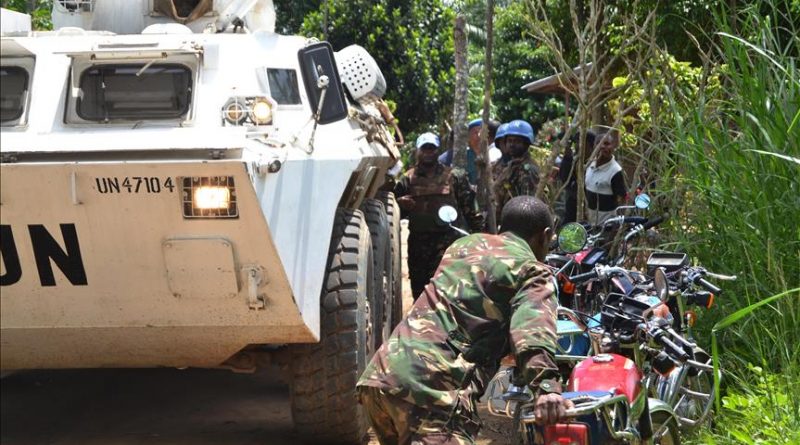Congo Rejects United Nations Aid
By Santiago Losada
Staff Writer
In the coming week, the United Nations is hosting a conference to raise money for the current violence plaguing the Democratic Republic of the Congo (DRC), or Congo. The main problem is that Congo itself will not be attending this conference. The current President of the Congo, Joseph Kabila, claims that his country will boycott the upcoming conference because there is no humanitarian crisis taking place. The recent boycott of the conference is yet another signal that Congo is becoming increasingly more isolated. Currently, Mr. Kabila is facing internal rebellion and criticism internationally for holding onto his presidential power past the terms set out in the Constitution.
Mr. Kabila’s government believes that the international community has been meddling in the country’s domestic politics. When new elections take place in December, Mr. Kabila plans to prohibit any and all outside assistance. The United Nations has a different picture in mind. According to The New York Times, Mr. Kabila’s rule has led to downfall of political authority, causing fighting that has so far displaced around 4.5 million people. Congo is currently seen abroad as one of the world’s worst humanitarian crisis.
Humanitarian actors have called for a funding appeal of $1.68 billion dollars to aid Congo after a surge of violence last year forced hundreds of thousands of people to flee their homes. As a result, other major problems like food insecurity and malnutrition have worsened. Women and girls have also suffered terrible sexual and gender based violence and around 13.1 million Congolese people are in dire need of help. According to the United Nations Office for the Coordination of Humanitarian Affairs, the DRC is also home to one of the most complex but hidden refugee crisis. So far around 750,000 Congolese have requested international protection in neighboring countries and the risk of these numbers increasing remains high.
Events in the DRC started taking a turn for the worst on December 16, 2016. This was the second term limit for President Kabila and while elections were supposed to be held on this day, authorities did not make any preparations and used security forces to silence any and all protesters. In 2017, the Catholic Church mediated a power sharing agreement that also called for elections and steps to decrease political tensions, but many aspects of this agreement have been ignored. Then in March 2017, the Catholic Church stepped down from its mediation role and blamed the failure of policymakers for not holding elections in agreement with the Constitution. Human Rights Watch reports that the national electoral commission published a calendar shortly after United States Ambassador Nikki Haley visited the country, which declared December 23, 2018 as the date for presidential, legislative and provincial elections.
Currently, the plan is to use 100,000 new electronic voting machines, but the US and many European countries have shown concern due to the fact that this new voting system has never been tested and could allow fraud to occur. The United States has currently warned the DRC to use paper ballots in its elections or risk losing American support. Reuters states that donors are waiting for clarification about how the elections will take place and how they will help their citizens.
A government spokesman, Lambert Mende, has claimed that the government’s rejection of aid was in part because of an upswing in government revenues from the mining sector. The DRC is the world’s biggest source of cobalt and a top copper producer. Mr. Mende claims that the mining sector revenue rose by 36 percent and revenue from the oil and gas sector has doubled.

